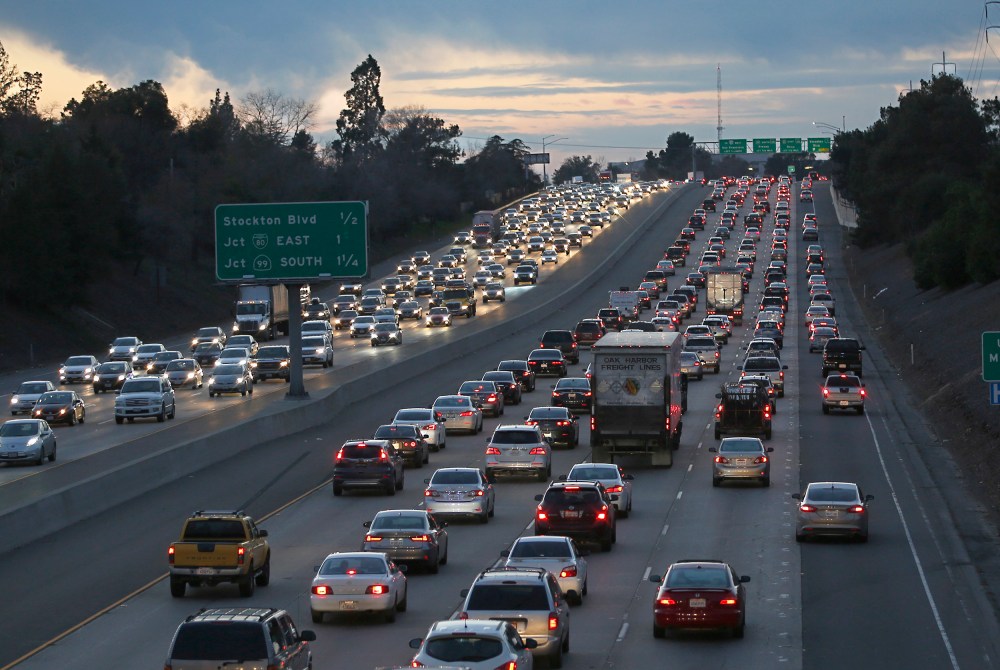Former President Barack Obama does not often comment publicly on current events, but he made an exception yesterday. “We’ve seen all too terribly the consequences of those who denied warnings of a pandemic. We can’t afford any more consequences of climate denial,” he wrote. “All of us, especially young people, have to demand better of our government at every level and vote this fall.”
There was no great mystery as to what Obama was referring to. In fact, the former president’s tweet referred readers to this Los Angeles Times article.
The Trump administration on Tuesday weakened one of the nation’s most aggressive efforts to combat climate change, releasing new fuel efficiency standards for cars and trucks that handed a victory to the oil and gas industry. The new rule, from the Environmental Protection Agency and Transportation Department, will almost immediately be plunged into litigation as environmental groups and states with stricter standards, led by California, plan to challenge it.
An Associated Press report added that the Trump administration’s own estimates expect the change to come with big costs: “more Americans dying from air pollution, more climate-damaging tailpipe exhaust and more expense for drivers at the gas pumps.”
The AP article went on to note, “The administration’s final rule relaxes future mileage standards for years to come, gutting tougher Obama-era standards that were the U.S. government’s single most forceful initiative against climate-changing fossil fuel emissions.”
If you’re new to this story, let’s review how we got here. To address the climate crisis, the Obama administration created tough fuel-efficiency standards for the auto industry in 2012, to be phased in gradually. Manufacturers, not surprisingly, weren’t thrilled, but there was a broad realization that the policy, in conjunction with a series of related efforts, would make a positive difference.
Donald Trump’s election changed all of that.
It’s worth emphasizing that the Republican administration’s new policy isn’t quite as ridiculous as the one originally floated. While the existing rules, as created by the Obama administration, requires 5% annual increases in fuel efficiency, Trump intended to lower that to zero, but settled this week on 1.5% annual improvements.
That’s cold comfort. Instead of auto manufacturers needing to reach an average of 54 miles per gallon by 2025, they’ll now have to reach 40 mpg by 2026. The L.A. Times‘ report added, “Nearly 900 million more tons of carbon dioxide are expected to be released under the new rule than under the Obama-era standards, a result of less efficient cars burning an additional 78 billion gallons of fuel.”
By way of an explanation, the current president turned to Twitter to stress a specific line of defense for his new rules: “Great news! American families will now be able to buy safer, more affordable, and environmentally friendly cars with our new SAFE VEHICLES RULE. Get rid of those old, unsafe clunkers.”
He added two minutes later, “My proposal to the politically correct Automobile Companies would lower the average price of a car to consumers by more than $3500, while at the same time making the cars substantially safer. Engines would run smoother. Positive impact on the environment! Foolish executives!”
This struck me as notable for a couple of reasons. The first is, though Trump didn’t come right out and admit it, his second tweet seemed to suggest that the auto industry is not fully on board with the administration’s regressive policy. If so, the apparent pushback comes less than a year after several major auto makers — many of whom were less than pleased with Obama’s approach — told the White House it was going too far in the other direction.
But just as notable is Trump insistence that his new policy on fuel efficiency is a matter of public safety. The president and his team seem to realize there would be a political problem if they ran around touting a pro-pollution agenda, which is why Trump keeps tweeting about his intention to make vehicles “substantially safer.”














